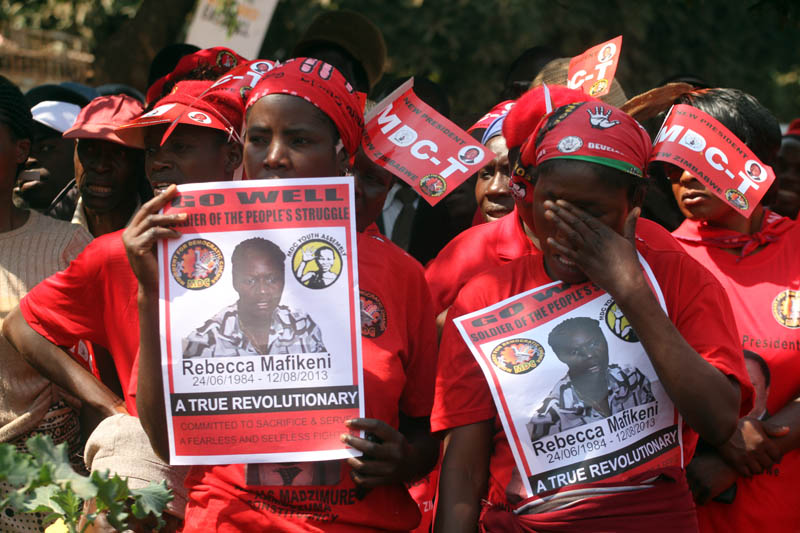
Rebecca Mafukeni died last month, in remand in Zimbabwe’s `notorious’ Chikurubi Maximum Security Prison. She had meningitis. Her bail application was denied. Her appeals for medication attention were rejected, and so Rebecca Mafukeni died … or was killed.
Mafukeni was one of 29 MDC-T supporters who were arrested two years ago, in 2011, on suspicion of having killed a police officer. Last week, 21 were acquitted because of lack of evidence. There was no evidence, and yet they remained behind bars, in Chikurubi, some for more than two years. The High Court Judge Chinembiri Bhunu took great pains to discuss the case of human rights activist Cynthia Manjoro. Manjoro had been released on bail in 2012, after a State witness testified that Manjoro had only been arrested “as bait” to lure her boyfriend into a trap. Whatever the plan was, Manjoro spent May 2011 to October 2012 in prison.
Yvonne Musarurwa had been with Rebecca Mafukeni in Chikurubi. She has described the experience as a nightmare, especially the months long period held in complete solitary confinement, under a `no human contact’ order. During that period, they thought they were Zimbabwe’s “most isolated women.”
This is the story of women’s lives, and deaths, in the Republic of Chikurubi. Chikurubi is one of those prisons that give notorious a bad name. It is the house of beatings, intimidation, sexual violence, and degradation. It is a place in which people are meant to rot, literally. It is a women’s prison where violence against women extends from overcrowding to refusal to dispense sanitary pads to direct sexual violence to torture to continual abuse and threats to isolation. It is a place that aims to destroy people, individuals, families, communities. In Chikurubi, the personal is political, and the politics is death.
Ask Jestina Mukoko. Ask Beatrice Mtetwa. Ask Violet Mupfuranhehwe. Ask Jennie Williams and Magodonga Mahlangu. Ask Cynthia Manjoro. They’ll tell you. Ask Yvonne Musarurwa. She’ll tell you: “During the first few weeks, we couldn’t cope with living in prison. Rebecca and I broke down completely. We thought we were going to die. But slowly, when we realized there were people who have been there many years before us, the condemned prisoners, we thought okay, we might make it as well.”
We might make it as well. Rest in peace, Rebecca Mafukeni. The struggle continues. We might make it as well.
(Photo credit: Newsday)